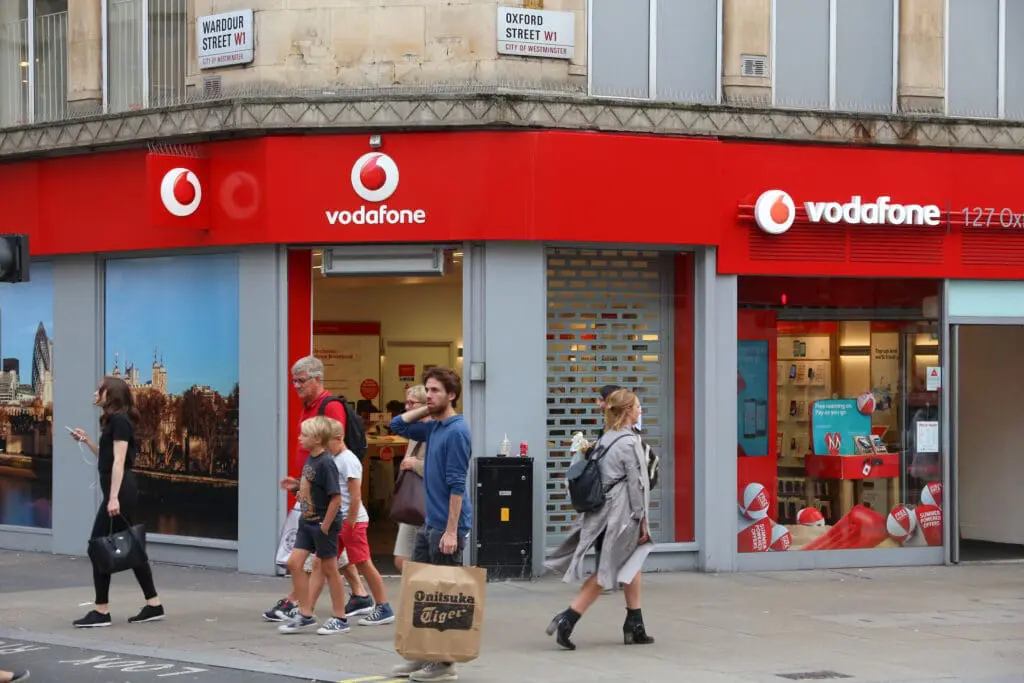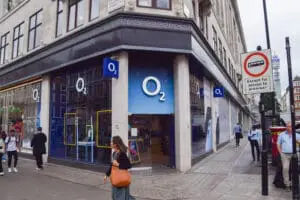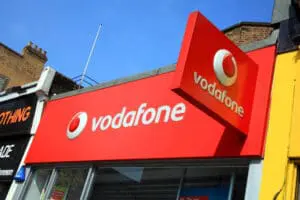Vodafone and Three merger could lead to higher prices
The £15 billion merger of mobile phone networks Vodafone and Three faces an in-depth investigation by competition watchdog.
The Competition and Markets Authority (CMA) has said the £15 billion merger of two of the four UK mobile networks – Vodafone and Three – could lead to higher prices for 27 million customers.
The watchdog gave the companies until this week to address concerns raised following its initial probe into the deal. It has now confirmed it will launch a phase 2 investigation after both firms told the regulator they would not be offering measures to ease its concerns.
The CMA said last month that the tie-up could have a ‘substantial’ impact on competition, warning it may lead to higher prices and reduced quality.
Julie Bon, deputy chief economic adviser at the CMA and the phase 1 decision-make for the case, said:
‘Our initial assessment of this deal has identified concerns which could lead to higher prices for customers and lower investment in UK mobile networks.’

Vodafone and Three deal would create UK’s largest mobile phone operator
Vodafone and Three first announced the mammoth merger last summer in a move that would create the UK’s largest mobile phone network.
Under the deal, FTSE 100-listed Vodafone and Three owner CK Hutchison will combine their UK operations, forming a business with about 27 million customers and more than 11,500 staff.
The merged firm will be majority owned by Vodafone with 51% of the combined business and CK Hutchison owning the remainder.
The two mobile firms have argued the deal will allow them to increase investment and better compete with major rivals, EE operator BT and Virgin Media-O2.
But the CMA launched an initial Phase 1 investigation into the move in January and said on 22 March that it has concerns over the impact of two of the UK’s four largest mobile firms merging.
Concerns about price hikes and job risks
The regulator said it found in its initial probe that the two companies are important alternatives for mobile customers and combining these two businesses will reduce rivalry between mobile operators to win new customers.
The watchdog also raised concerns that the deal “may make it difficult” for smaller mobile operators – such as Sky Mobile, Lebara and Lyca Mobile – to negotiate good deals for their own customers, by reducing the number of mobile network operators which will host them.
Unite the Union has warned the deal will not only raise prices for consumers but could also put jobs at risk. Sarah Carpenter, executive head of operations at Unite, said:
‘As well as raising serious competition risks, the proposals would harm the job security of UK workers and would raise prices for consumers when they are still suffering from the cost-of-living crisis.’
Vodafone and Three preparing for phase 2 probe
Vodafone flagged last month after the CMA gave its initial findings that it was preparing for a phase 2 probe.
Experts said the two companies were not expected to put forward a package of measures to ease competition concerns by the April deadline that would allow the regulator to close its investigation.
Alex Haffner, competition partner at UK law firm Fladgate, said last month that the pair would ‘probably have to give up more ground at this stage than later on in the process.’
On the latest announcement by the CMA, Vodafone and Three said: ‘This was an expected next step in the process and is in line with the timeframe for completion that we set out from the outset.
‘Vodafone UK and Three UK remain confident that the transaction will drive stronger competition in the mobile sector and give customers and businesses a step-change in network quality, speed, and coverage from day one.’
They added: ‘We will review the potential concerns raised by the CMA and look forward to continuing to engage constructively with them throughout the review.’
Vodafone and Three facing ‘loyalty penalty’ compensation lawsuit
Last year Vodafone, Three, EE and O2 were accused of using their market dominance to overcharge consumers on up to 28.2 million mobile phone contracts.
Justin Gutmann, a former Citizens Advice executive, and law firm Charles Lyndon filed a £3.3 billion compensation claim. The UK’s four largest mobile phone companies are accused of charging a ‘loyalty penalty’ that has left 28.2 billion customers paying significantly more than new customers for the same services.
If successful, a consumer who bought a contract made up of a mobile phone and services such as data, calls and texts with just Vodafone, EE, Three or O2 could be owed as much as £1,823.
Gutmann’s compensation claim was filed the same month that Ofcom announced its plans to ban inflation-linked mid-contract price rises on mobile phone contracts.
Related claims

O2
O2 is accused of overcharging customer on mobile phone contracts and could owe customers up to £1,178 per contract. Sign up to stay updated.

Three
Three is accused of overcharging customer on mobile phone contracts and could owe customers up to £1,817 per contract. Sign up to stay updated.

EE
EE is accused of overcharging customer on mobile phone contracts and could owe customers up to £1,101 per contract. Sign up to stay updated.

Vodafone
Vodafone is accused of overcharging customer on mobile phone contracts and could owe customers up to £1,823 per contract. Sign up to stay updated.


